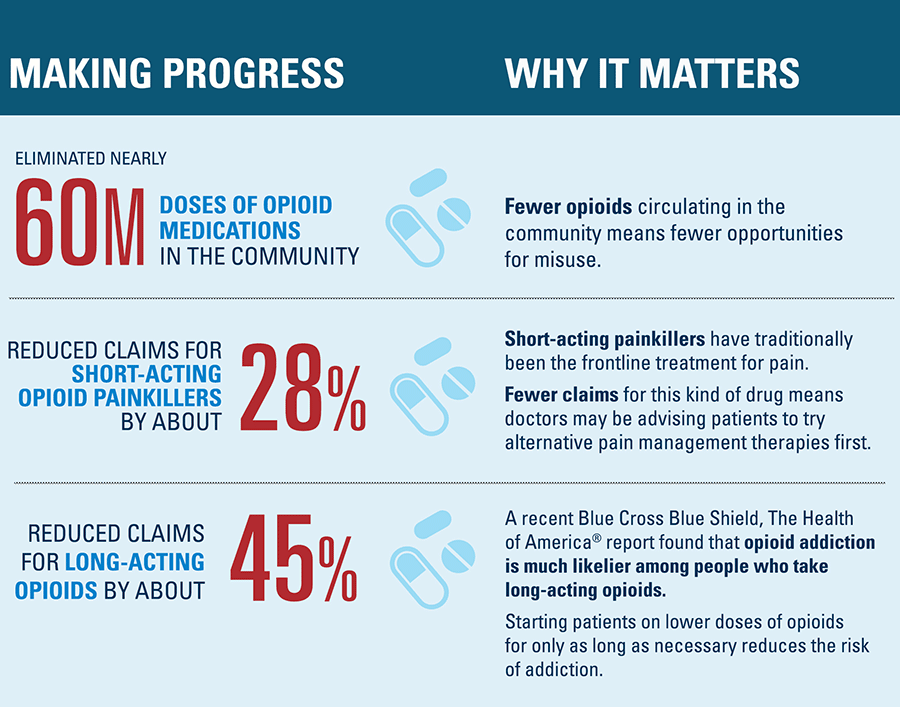Update: In 2017, nearly 250,000 Blue Cross and Blue Shield company members were living with an opioid use disorder diagnosis. However, prescription rates for opioids had gone down, potentially lowering the risk of addiction, as detailed in this report from the Blue Cross Blue Shield Association.
In 2013, drug overdoses, mostly from opioids, surpassed car accidents as the leading cause of accidental death in the United States, according to the Centers for Disease Control and Prevention. A year ahead of that grim milestone, Blue Cross and Blue Shield of Massachusetts (BCBSMA) was already laying the groundwork for an ambitious program to bend the curve. The goal: to lower the number of opioid prescriptions written and to reduce members’ risk of getting addicted.

Officials emphasize the program isn’t about taking pain medications away from those who need them. “Our program is about preventing harm by making sure our members receive the highest quality care for pain, while reducing the risks that come with such treatments,” said Dr. Bruce Nash, chief physician executive for BCBSMA. “The results are encouraging and show that, among other things, health plans can play a meaningful role in helping to prevent prescription pain medication addiction.”
How they did it
First, BCBSMA convened a team of doctors, nurses, pharmacists and data analysts, plus an advisory group of pain management specialists, addiction experts, pharmacists and primary care providers, to come up with a plan.
A top priority was identifying doctors prescribing more opioids than medically necessary. The team sent those doctors a detailed report about their prescribing habits and offered consultation with a BCBSMA addiction specialist to identify ways to reduce a patient’s risk of addiction.
To prevent potentially harmful prescribing, the team recommended requiring prior approval for more than three refills for short-acting opioids and for new prescriptions for long-acting opioids (patients with cancer or a terminal illness are exempt from these authorizations). And the group developed a set of best practices for doctors who prescribe opioids, to encourage real dialogue with patients about the risks and benefits of opioids. Those include:
- Developing a treatment plan between the doctor and patient that considers alternatives to opioids.
- Conducting a risk assessment for addiction that’s signed by the patient.
- Choosing a single pharmacy or pharmacy chain for all opioid prescriptions – to deter patients from filling prescriptions at multiple pharmacies.
And, for patients with opioid use disorder, the health plan has built an extensive network of addiction treatment providers and access to medication-assisted therapy for beginning and sustaining recovery.
But there’s still a sense of urgency. A recent BCBSMA survey found that residents believe the opioid crisis is the most serious problem facing the state today. "These findings reveal that while we've made strides in addressing the opioid epidemic, we as a state clearly have a great deal of work to do," said Andrew Dreyfus, president and CEO of BCBSMA. "We have a shared responsibility to explore innovative ways to address the unique needs of this public health crisis and ensure that individuals have timely access to treatment." So BCBSMA will continue leading the fight.
Blue Cross and Blue Shield of Massachusetts is an independent licensee of the Blue Cross Blue Shield Association, an association of independent, locally operated Blue Cross and Blue Shield companies.

